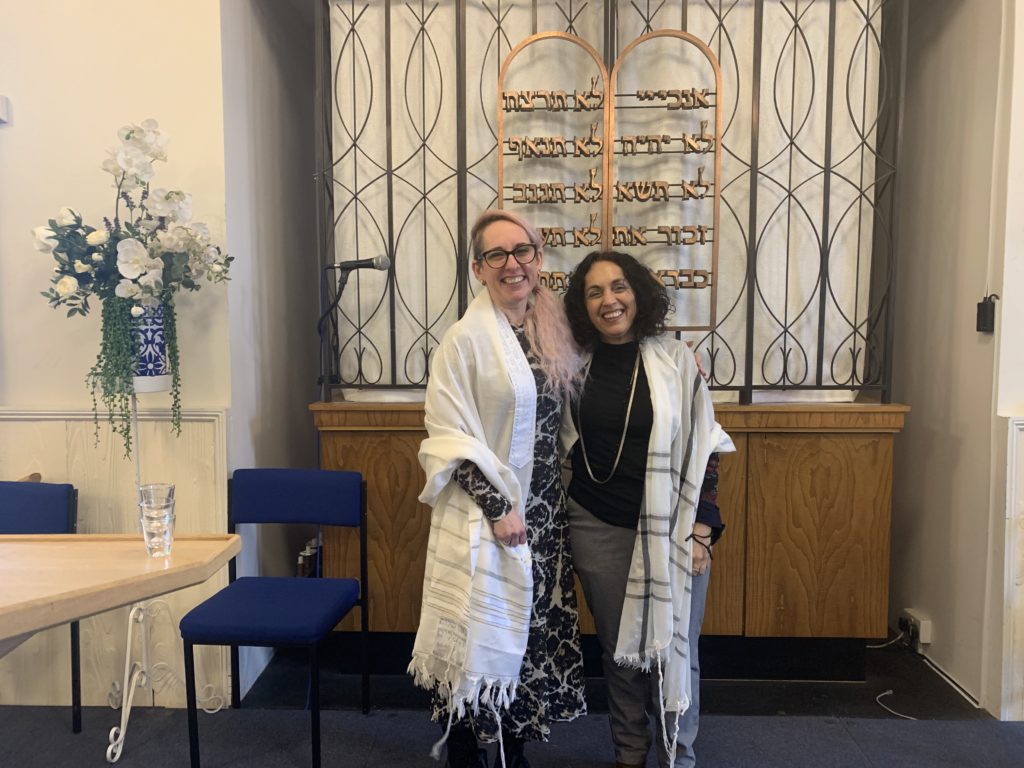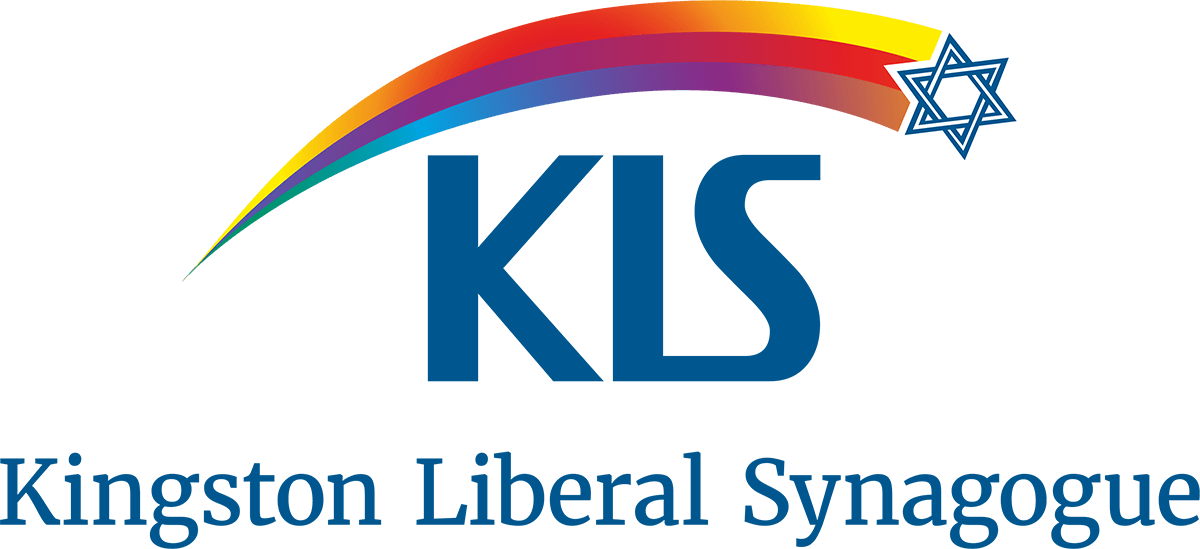Rabbi Charley Baginsky’s sermon reflecting on the teachings of the Torah and Disney films…..
Last Saturday we were delighted to welcome back our former Rabbi, Charley Baginsky, to lead the service on Shabbat Shirah – the Shabbat of Song – on which we read the Shira Ha-Yom – the Song of the Sea. Rabbi Charley was joined by Rabbi Chen Ben-Or Tsfoni – the spiritual leader and one of the founders of Congregation Nigun Ha’Lev, a group of spiritual leaders working to build and renew Israeli Judaism.

Rabbi Charley gave an original and inspiring sermon which you can read below.
Beshalach
I cannot take credit for today’s sermon, the inspiration for it came entirely from a recent article in the JC by Viola Levy. In this quite brilliant, in my opinion, article she urges the readers to watch the new Disney Film, Encanto. She says:
Not only does it feature the first Disney heroine with glasses, Encanto is a clever comment on close-knit South American families – and it says a lot about Jewish families, too.
Set in Colombia, the story centres around a family whose matriarch has built a new life after escaping persecution. The candle she escapes with becomes enchanted and conjures a big magical house for the family to live in. But years later, said house starts to crumble and its inhabitants have to confront their dysfunction. (Pretty epic for a Disney film… they’ve come a long way since Cinderella.)
Many of its themes will hit home for those of us raised in a culturally close-knit family, whether Colombian or Jewish. .. The estranged relative no one talks about. The eldest daughter expected to carry the weight of the family (*raises hand*). The younger generations expected to over-achieve to compensate for everything their grandparents went through. And there’s that one family member whose moods affect the weather – or so it feels like – so the whole household scrambles to soothe them. And, most poignantly, if you don’t have a discernible ‘gift’ you’re made to feel like the film’s heroine, Mirabel, that you’re somehow lacking and have let the family down.
The enchanted house at the centre of the film stands for everything minority communities like ours try to build: business empires, big houses, strong family dynasties – places of power and safety to make up for the past. And when those start to crumble, what are we left with?
Encanto is also a powerful commentary on how close-knit, outwardly warm and loving families can also be suffocating and smothering – assigning each family member a role where you’re not allowed to break character, even for a minute.
This film serves as a colourful reminder that you are more than just your gifts and achievements, and more than just your role your family has assigned to you.
It’s that mindset that I’m taking into 2022 – cheers Disney.
It was particularly poignant for me as I remembered just over 13 years ago when as a fifth year student at the College, just having found out I was pregnant, I went to see a Disney film without children! For some reason probably connected to pregnancy hormones I was desperate to see the Disney film of the moment, Enchanted… it is a cartoon / film about a wanna-be princess who, on the way to marry her prince, is pushed down a well by his evil step mother. The well takes her on a journey to another world, New York city. Suffice to say she finds New York to be a world a way from her fluffy fairytale. But somehow she manages to find things to sing about, things that make her smile amongst the grey and aloof streets of the city. Everywhere she goes her innocent spirit touches other people. At first they are bewildered by her, assuming that her cheerful spirit is at best naivety and at worst some sort of mental health disorder. Yet after time in her presence they find her cheerful spirit contagious and even feel themselves singing along with her upbeat, if cheesy, Disney tunes.
What has any of this to do with this week’s parasha you ask, have you missed the wicked step mothers in the story of the exodus or the princesses in the desert or even an illicit mention of New York city? No you have not, but this week’s portion is also about miracles. Exodus is a book of miracles, the burning bush, the ten plagues in this week’s portion the parting of the red sea and perhaps the biggest miracle of all freedom.
But as our ancestors approach the red sea they forget all the miracles that have passed before and they are reluctant to approach the sea. They are the people of New York, or perhaps more appropriate for us London, they are us – made cynical by the world, reluctant to see what is in front of them, as miracles are no longer part of their vocabulary. It took one brave soul, Nachshon, son of Aminadav to literally jump into the sea for them to believe it would part.
After the crossing the Sea the people break into song. Shirat Ha-yam. The song has become so symbolic of our relationship with God that it is included in our daily liturgy. But our ancestors’ memories are short and by the end of the same chapter they are already complaining about the lack of water and in the following chapter they even say that they wish they were back in Egypt. God provides them with food and drink and constant reminders of the miracles they had experienced. But their attitude does not change. It seems that too many miracles had made them ordinary.
So our ancestors lost sight of miracles in the Torah. In rabbinic literature there is no single recorded instance of a rabbi being asked by their colleague to demonstrate the soundness of their doctrine by performing a miracle. So the rabbis too had no time for them, then what hope is there for us. Perhaps we should be proud of our continued cynicism about miracles. Maimonides believed that the scientific analysis of the world around us would lead to a greater understanding of God. But there are those who say that it is this exact same knowledge that has destroyed our sense of wonder. Arguably if we can analyse everything and create everything then is it surprising that there is nothing miraculous any more.
But I would urge us to return to the film Enchanted. Yes, it is a naïve film created by the marketing geniuses at Disney, but amongst the shmaltz there is a serious message that the world is still miraculous if you just take a moment to recognise it. An artist called Sarah McLachlin sings the words: “it’s not unusual when everything is beautiful, its just another ordinary miracle today. The sky knows when it’s time to snow, don’t need to teach a seed to grow. Its just another ordinary miracle today.” Or in more traditional words as the Ba’al Shem Tov said “The world is full of wonders and miracles, but we take our little hands and we cover our eyes and see nothing”.
We are in unprecedented precedented times so to speak – we are exhausted! In one moment the vaccine felt miraculous and in the next how many shots will be enough, in one moment miraculous to hear the birds sing and in the next defeaned by the sound of loneliness. Seeing miracles takes in many ways the energy to belive and many of us are all out of energy.
But Enchanted not only reminded me of the parasha this week, but also of the prayer that we say every service, thanking God for the miracles which are with us daily, the wonders and goodness that occur at all times, morning, noon and night. This prayer reminds us that Judaism is a religion of the every day. It is not that we are commanded to transform the every day into the sacred, but that we are asked to recognise that the sacred exists around every ordinary bend long the way. We are trained to look for God in the ordinary places, indeed the Talmud tells us that no one is allowed to enjoy something from the world without reciting a blessing. Like this moment of being together, even in unusual ways in unusual times…. – even when what we thought would be the other day – has become the every day
The rabbi Abraham Joshua Herschel said that the Shabbat was the pause between the notes, a palace in time. It is made of soul, of joy and reticence.” It is very hard to resensitise to all the myriad of miracles that surround us. But perhaps even for a few moments we will take time to realise the miracle of Shabbat, the pause between the notes. I leave you with a poem by the Israeli poet Leah Goldberg who writes about the desire to not leave miracles as moments in the past or in the cinema, but looks to make them part of her everyday life.
Teach me, my God, blessing and prayer
For the secret of the withered leaf, the brightness of the ripened fruit,
For this freedom to see, to sense, to breathe
To know, to wish, to fail
Teach my lips a blessing, a song of praise
In renewal of your day, each morning and eve
That my today not be like all my yesterdays
That my day not be – merely routine.
